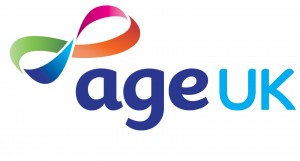 Citizens Advice have carried out a benchmarking study into British Standard for inclusive service provision (BS 18477). Find the full report, titled Treating consumers fairly, here.
Citizens Advice have carried out a benchmarking study into British Standard for inclusive service provision (BS 18477). Find the full report, titled Treating consumers fairly, here.
Benchmark study
To accelerate the rate of uptake of the Standard and support companies’ endeavours to become more inclusive, Citizens Advice (Consumer Futures) commissioned independent research consultancy, Opinium Research LLP to conduct a benchmarking study of three organisations that are directly or closely linked to Citizens Advice and provide free help concerning advice and redress for energy consumers:
- the Citizens Advice consumer service (the consumer service)
- the Ombudsman Service: Energy
- the Extra Help Unit.
All three organisations operate towards the end of a consumer journey – they deal with the consequences of decisions (or indecisions) of other organisations or companies.
Objectives
We believe that all companies’ key aims – particularly those companies providing essential goods and services – should include the provision of fair and flexible services to their consumers. We consider that the time has arrived for a transparent cultural shift whereby organisations:
- reframe their perspective
- change the way they think about consumers and their business
- build ‘long-term relationships’ with consumers; ‘earning their trust and then their business’, to become ‘social leaders’.
A more inclusive approach would benefit all consumers. It could particularly benefit those experiencing vulnerability, as well as improving organisations’ own brand, reputation and employee confidence and satisfaction. In turn, this would benefit society and the wider economy.
Conclusions
A demonstrable organisation-wide commitment to providing services that are fair and accessible to all underpinned all the examples of good practice. The experiences of these organisations suggest that developing a broad, flexible understanding of vulnerability and its impact on the consumer is the critical first step in becoming a fair, inclusive and accessible organisation.
But before an organisation can consider how it should respond to vulnerability, it must first ensure its staff can identify it. For the three participating organisations, training played a crucial role in ensuring that staff:
- can identify or elicit evidence of vulnerability and
- possess the necessary “soft” skills for dealing with consumers in such circumstances.
 The UK Regulators’ Network has today launched an advisory leaflet to help ensure vulnerable consumers get the help they need to access essential services.
The UK Regulators’ Network has today launched an advisory leaflet to help ensure vulnerable consumers get the help they need to access essential services. Consumer groups should take a look at chapter 7 of Ofwat’s
Consumer groups should take a look at chapter 7 of Ofwat’s  Ofgem’s consultation on
Ofgem’s consultation on  On 17 December 2015, Ofgem published its final proposals for the Priority Services Register, considered integral to its consumer vulnerability strategy. The aim is to ensure that existing services relating to safety, access and communication in the energy market meet the needs of consumers in vulnerable situations.
On 17 December 2015, Ofgem published its final proposals for the Priority Services Register, considered integral to its consumer vulnerability strategy. The aim is to ensure that existing services relating to safety, access and communication in the energy market meet the needs of consumers in vulnerable situations. Citizens Advice has published new research on energy tariff options for consumers in vulnerable situations which aims to provide researchers, policy makers and energy market stakeholders with a better understanding of the possible options to ensure that disengaged vulnerable consumers are not penalised by higher tariffs. The research was carried out by the Centre for Sustainable Energy. Read more
Citizens Advice has published new research on energy tariff options for consumers in vulnerable situations which aims to provide researchers, policy makers and energy market stakeholders with a better understanding of the possible options to ensure that disengaged vulnerable consumers are not penalised by higher tariffs. The research was carried out by the Centre for Sustainable Energy. Read more  On 15th April 2015 ESAN, Citizens Advice and Money Advice Trust joined forces to host a conference on practical steps towards effective implementation of vulnerability strategies. Over 70 delegates from firms, regulators and voluntary organisations across financial services, energy, water and communications attended.
On 15th April 2015 ESAN, Citizens Advice and Money Advice Trust joined forces to host a conference on practical steps towards effective implementation of vulnerability strategies. Over 70 delegates from firms, regulators and voluntary organisations across financial services, energy, water and communications attended. Citizens Advice have carried out a benchmarking study into British Standard for inclusive service provision (BS 18477). Find the full report, titled Treating consumers fairly,
Citizens Advice have carried out a benchmarking study into British Standard for inclusive service provision (BS 18477). Find the full report, titled Treating consumers fairly,  More than a million pensioners are still living in poverty, partly due to their failure to claim benefits, the charity Age UK has claimed. In a
More than a million pensioners are still living in poverty, partly due to their failure to claim benefits, the charity Age UK has claimed. In a  Ofgem is reviewing its work on priority services.
Ofgem is reviewing its work on priority services. The Policy Studies Institute have released new research which examines the relationship between pay, employment and poverty. Here is a
The Policy Studies Institute have released new research which examines the relationship between pay, employment and poverty. Here is a